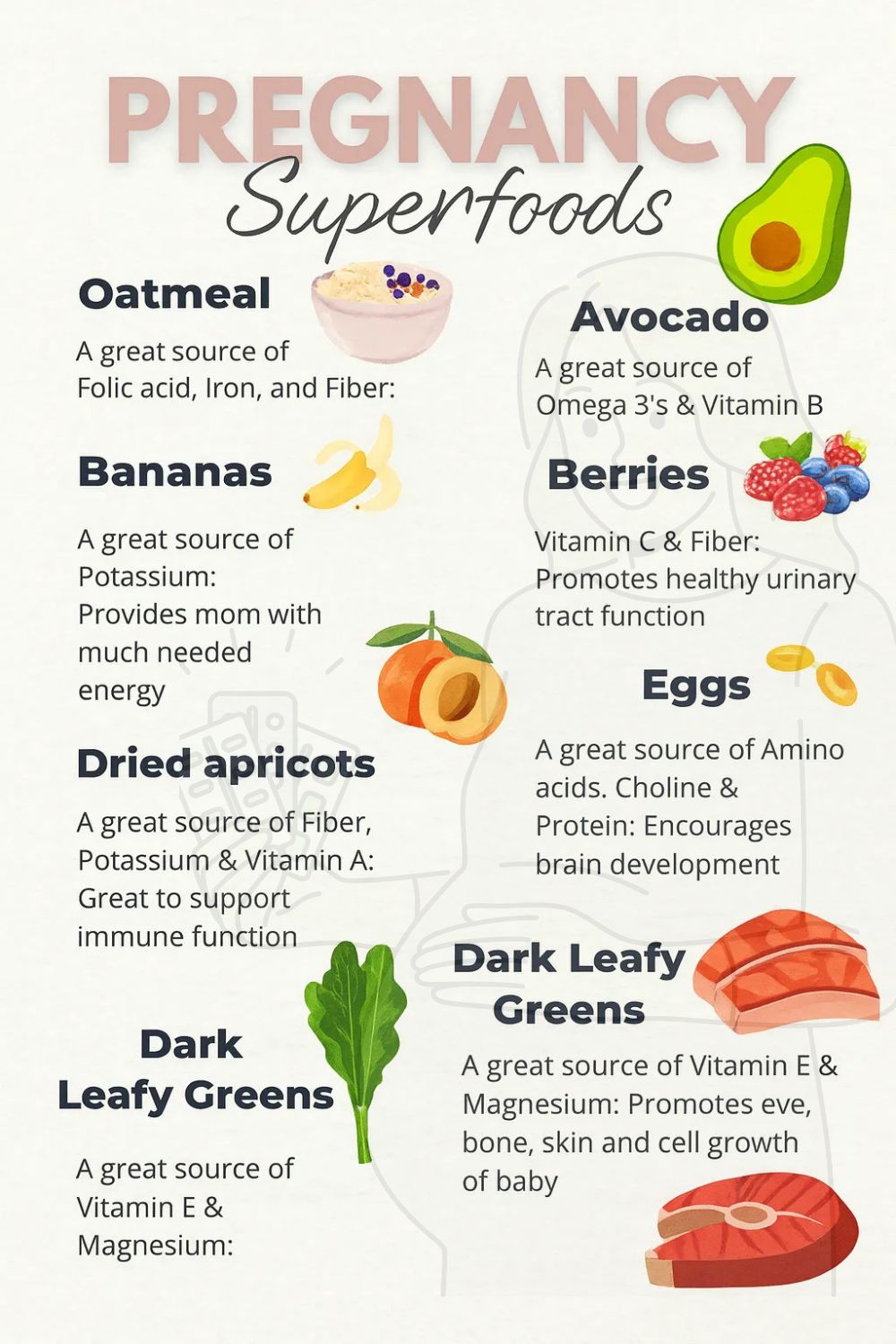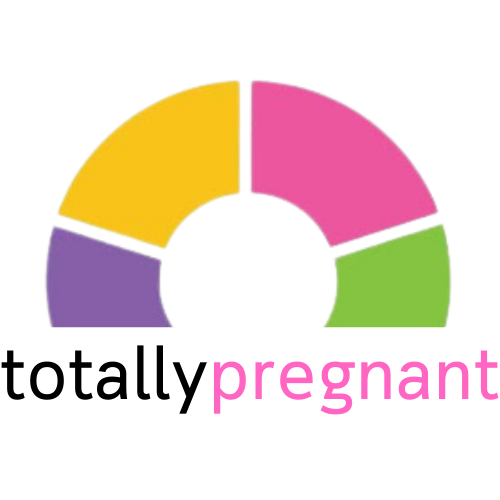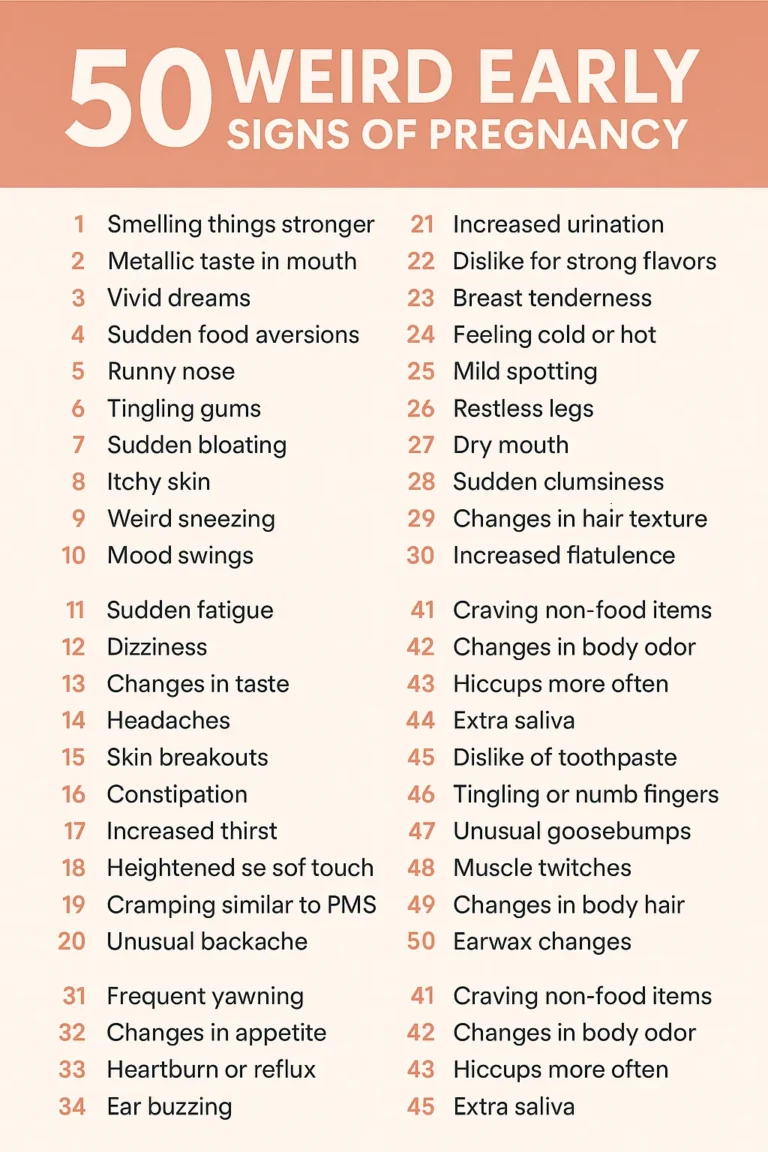A Guide on What to Eat During Pregnancy

Eating well during pregnancy is not just about keeping yourself full. It’s about giving your baby the nutrients they need to grow healthy and strong.
The foods you choose every day can directly affect your baby’s brain, bones, and overall development.
When I was expecting, I quickly realized how overwhelming it felt to hear a hundred different opinions on what to eat and what to avoid.
That’s why I decided to keep it simple: focus on foods that are nutrient-rich, safe, and support both mom and baby.
In this guide, I’ll share research-based recommendations and practical tips to make pregnancy eating less confusing and more enjoyable.
Why Nutrition Matters in Pregnancy
During pregnancy, your body works harder than ever. You’re not only supporting your own health but also building a new life inside you. This means your need for vitamins, minerals, and energy naturally goes up.
Good nutrition helps prevent complications like anemia, low birth weight, or gestational diabetes.
It also supports your baby’s organ and brain development. Think of it this way: every meal is a chance to fuel both of you with something that counts.
Best Foods to Include in Your Pregnancy Diet
Dairy
Milk, yogurt, and cheese are some of the best sources of calcium, protein, and probiotics. Calcium supports your baby’s bones and teeth, while probiotics help with digestion. Choose pasteurized options to avoid harmful bacteria.
Legumes
Beans, lentils, peas, and chickpeas are packed with fiber, protein, iron, and folate. Folate is especially important in the first trimester to prevent neural tube defects. The fiber also helps reduce constipation, which is common in pregnancy.
Sweet Potatoes
Sweet potatoes provide beta-carotene, which the body turns into vitamin A. This vitamin helps with your baby’s eye, skin, and organ development. They’re also high in fiber, making them a filling and healthy carb choice.
Salmon
Salmon is rich in omega-3 fatty acids like DHA, which play a key role in brain and eye development. It also contains vitamin D, important for bone strength. Just make sure to eat cooked salmon and avoid raw or high-mercury fish.
Eggs
Eggs are considered a superfood in pregnancy. They contain protein, healthy fats, vitamins, and choline, which supports your baby’s brain development. Cook them thoroughly to reduce any risk of salmonella.
Leafy Greens
Spinach, kale, and Swiss chard are full of vitamins A, C, K, and minerals like iron and calcium. They also provide antioxidants that protect your cells. Adding them to smoothies or omelets is an easy way to boost nutrition.
Lean Meat
Beef, chicken, and turkey are excellent sources of high-quality protein and iron. Iron helps prevent anemia and keeps your energy levels steady. Pairing meat with vitamin C–rich foods (like citrus) improves iron absorption.
Berries
Strawberries, blueberries, and raspberries are loaded with antioxidants, vitamin C, and fiber. They help regulate blood sugar and keep you hydrated since they have a high water content. A handful makes a perfect pregnancy snack.
Whole Grains
Oats, brown rice, and quinoa provide steady energy and fiber. They’re also rich in B vitamins, which support your baby’s overall development. Whole grains help manage blood sugar levels better than refined carbs.
Avocados
Avocados are packed with healthy monounsaturated fats that help your baby’s brain and skin grow. They’re also rich in folate, potassium, and vitamin K. Many pregnant women find avocados help ease leg cramps because of the potassium.
Dried Fruit
Dates, prunes, and apricots are nutrient-dense and provide quick energy. Prunes, in particular, are known to help with constipation relief. Since dried fruit is high in natural sugar, it’s best to eat in moderation.
Fish Liver Oil
Cod liver oil is rich in omega-3 fatty acids and vitamin D. Both are essential for your baby’s brain and bone health. However, take it only in recommended amounts because too much vitamin A can be harmful during pregnancy.
Water
Staying hydrated is one of the simplest and most powerful habits during pregnancy. Water supports blood circulation, amniotic fluid levels, and nutrient transport to your baby. Aim for 8–10 glasses a day, and sip regularly instead of chugging at once.
Foods to Limit or Avoid During Pregnancy
High-Mercury Fish
Shark, swordfish, king mackerel, and certain types of tuna contain high levels of mercury. Mercury can affect your baby’s brain and nervous system development. Choose low-mercury fish like salmon, sardines, or trout instead.
Raw or Undercooked Seafood
Sushi, oysters, and other raw seafood may contain harmful bacteria or parasites. These can cause food poisoning, which is riskier during pregnancy. Always go for fully cooked seafood options.
Deli Meats and Hot Dogs
Cold cuts and hot dogs can carry listeria, a bacteria dangerous for pregnancy. If you want to eat them, heat until steaming hot to reduce the risk. Otherwise, it’s best to skip them.
Unpasteurized Dairy and Juices
Soft cheeses like brie, feta, or blue cheese (unless pasteurized) can harbor listeria. The same goes for unpasteurized milk and juices. Always check labels to ensure pasteurization.
Raw Eggs
Eggs with runny yolks or foods made with raw eggs (like homemade mayonnaise) may cause salmonella. Stick to well-cooked eggs where both the yolk and white are firm.
Caffeine
Coffee and tea are fine in moderation, but too much caffeine can increase the risk of low birth weight. Most experts recommend keeping intake under 200 mg per day (about one 12-ounce cup of coffee).
Alcohol
There is no safe level of alcohol during pregnancy. It can interfere with your baby’s brain and organ development. Replacing it with sparkling water or fruit-infused drinks is a healthier choice.
Processed Junk Foods
Chips, sodas, and sugary snacks are tempting but offer little nutrition. They can also make weight management and blood sugar harder to control during pregnancy. Treat yourself occasionally, but focus on nutrient-rich meals most of the time.
Final Thoughts and Simple Meal Tips
Eating well during pregnancy isn’t about being perfect. It’s about making small, consistent choices that fuel both you and your baby. Focus on whole foods, balance, and variety, and you’ll naturally cover most of your nutritional needs.
Here are a few easy meal ideas to keep things simple:
- Breakfast: Oatmeal with berries, nuts, and a boiled egg on the side.
- Lunch: Grilled chicken or salmon with leafy greens, avocado, and whole grain bread.
- Snack: A banana with peanut butter or a handful of dried fruit and nuts.
- Dinner: Sweet potatoes with lentils, steamed veggies, and a small portion of lean meat.
- Hydration: Carry a water bottle and sip throughout the day.
Remember, pregnancy is a journey, not a checklist. If you occasionally indulge in a craving, that’s completely fine. What matters most is the overall pattern of nourishing your body and your growing baby.






